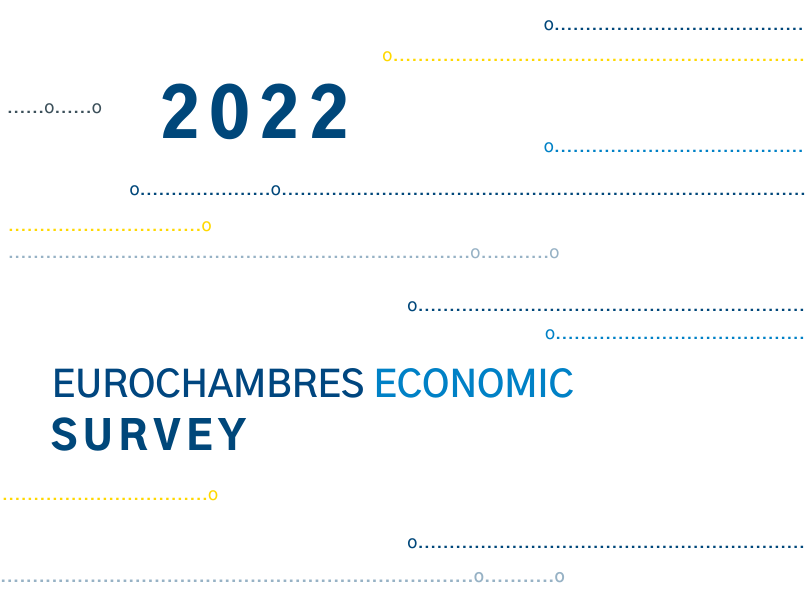Eurochambres Economic Survey 2022 (EES2022) – Report
EXECUTIVE SUMMARY
Despite facing a sharp contraction in the biennium 2020-21, businesses in Europe expect to perform better in 2022 as a result of severe measures taken to curb the spread of the virus, the re-opening of the economy and the consequent rebound in most sectors. Compared to 2021, where the path towards recovery remained extremely uncertain, the EES2022 results show initial signs of confidence facing structural challenges such as debt accumulation, unemployment levels and the business approach towards the twin transition.
On a sectoral level, the impact has been uneven and mostly dependent on the roll-out of effective vaccines by national governments. The parallel decisions in terms of gradually lifting restrictions and reopening borders for trade and tourism have proved to be crucial in supporting economic activities. Excluding touristic services, trade in the manufacturing sector was hit more severely from the pandemic with many SMEs under great stress or ultimately forced to exit the market due to the lack of immediate financial support. Next year, the upturn is expected to be consolidated in all sectors with its magnitude depending on the national growth rates and the degree of openness, at the European level, to embrace long-term sustainable policies in a more business-friendly framework.
In 2021 businesses faced different challenges compared to 2020. While health emergencies and economic turmoil dominated 2020 with many companies being forced to temporarily shut down their activities, 2021 brought a mild sense of normality, hindered by partial and localised lockdown measures combined with a gradual increase of household consumption.
Overall, 2022 will be a transitory year with the prospect of recovery on top of most governments’ agendas. Moreover, factors boosting the short-term economic growth will gradually fade away, with consequent reductions in the national GDP growth rates. Furthermore, the aftermath of the pandemic is gradually revealing a mismatch between global supply and demand and is expected to continue during the next year, which could result in an upward pressure on overall prices. Moreover, the soaring prices of oil, coal, and gas call for extreme prudency on the disruptive impact that a potential energy shock can have on businesses. Thus, the necessity to reduce the dependency from fossil fuels, especially from external suppliers, must be complemented by a massive increase of national expenditure in clean energy technologies.
The fear around potential new lockdown measures persists as a long-term factor impacting businesses into the next year, in addition to the supply chain disruption and the impact on trade opportunities. Lastly, European businesses expressed their concerns around affordable access to energy and raw materials, a lack of skilled workers and labour costs, as major challenges for 2022.
